Beverage Industry in Côte d’Ivoire: Presentation of SOLIBRA
Stefano Cocito, General Manager of SOLIBRA (Société de Limonaderies et Brasseries d’Afrique)
Stefano Cocito gives an overview of the beverage sector in Côte d’Ivoire and presents SOLIBRA, mentioning the company’s main products, CSR actions and plans for the future, but also the competition and challenges to be faced. Mr Cocito also shares his vision for Côte d’Ivoire.
Interview with Stefano Cocito, General Manager of SOLIBRA (Société de Limonaderies et Brasseries d’Afrique)
Can you give us a description of the beverage sector in Côte d’Ivoire? How do you analyse this sector?
The beverage sector in Côte d’Ivoire is a growing sector. We witnessed quite significant growth rates in the last three years – this is what justified the large investments we’ve made. Generally, the beverage industry accompanies quite closely the economic growth of a country. If growth is accompanied by an increase in purchasing power, the beverage industry automatically benefits from that.
We have been the leaders for many years, in both beer and soft drinks. Obviously, there is competition, there is a new competition in the beer industry, but we remain the leaders and we intend to stay the leaders for a long time to come.
How do you see SOLIBRA in this sector?
We have been the leaders for many years, in both beer and soft drinks. Obviously, there is competition, there is a new competition in the beer industry, but we remain the leaders and we intend to stay the leaders for a long time to come.
Is there room for new players in the sector?
Yes, of course. I think it is the case in any growing economy and growing market. If the market was not buoyant, if the prospects were not good, it wouldn’t interest any new player to invest in the market. We have a presence of sixty years, so it is obvious that we stayed permanently present on the Ivorian territory, and despite the events and difficulties, we never left the country. That means that if a new player arrives today, which is the case, it is due to the growth experienced here, so the sun shines for everyone, there is room for many players. I think competition is interesting for the consumer because it forces manufacturers to ensure quality, and generally it has a tendency to lower prices. It is also important for us to have competition, as it forces us to take a new look on ourselves, and it obliges us to be innovative, to modernize our equipment, to adhere to quality, etc.
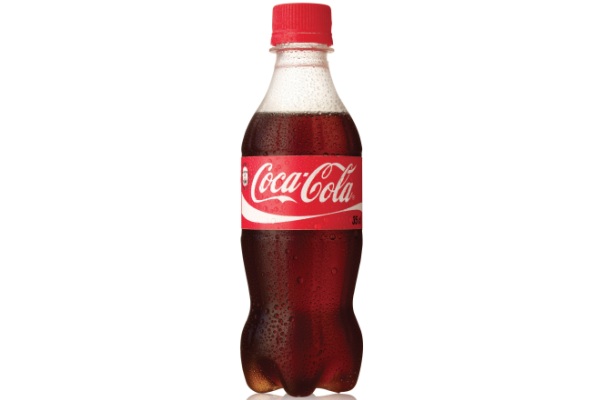
Are you planning to innovate, to amend your production?
In two years: 2012 and 2013, the group has invested about 50 billion CFA francs for the modernization of its equipment, and we have a program here in 2014 of about 30 billion CFA francs investment. So we are in a process of investment and development, both in terms of our ability and the level of quality of our products.
What is the main challenge for a company like yours? Is it in the distribution? Is it in the brand image? What is the key point here?
We cannot dissociate distribution from quality. In fact, the challenge is to manage to accompany the development of the country. That means to be prepared to provide the market with what is needed, in terms of volumes, which are growing, and in terms of quality, where requirements in Africa today are exactly the same as in Europe or internationally. Now the challenge is to offer the market the quantity and quality that are required, and at the same time to offer it to all the inhabitants of the country. This means that the distribution is also a key factor in our development, because we must be able to bring our products to the most remote corners of the country, despite the fact that the infrastructures are not always up to a modern distribution, equipped with trucks, etc.
So how do you deal with that? It’s true that infrastructure is one of the concerns of Côte d’Ivoire.
We have to do with what we have. Our job is to provide, distribute and sell beverages, we don’t make roads unfortunately. So we actually have to support the development of the country, and sometimes we are not able to supply places because of the lack of infrastructures. That means that we will go into these places the day when the infrastructure will be available. But clearly the government has the will to improve this state of affairs. I think there are many efforts that have been made, and I think in the future it will develop further. The government intends to make Côte d’Ivoire an emerging country in 2020, it means there are still some years, and I think the government intends to make the best use of these years, and precisely bring the Ivorian infrastructure to the required level for an emerging country.
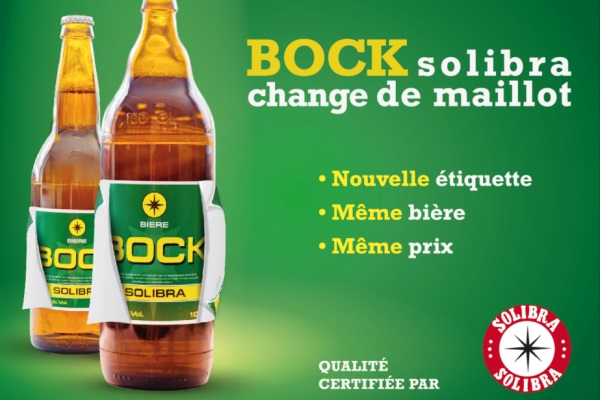
Let’s talk about your flagship products. What are the products that are the most important to you, and that you want to develop more in the coming years?
For me, the most important brand remains the flagship brand of Côte d’Ivoire: the Bock, which is the historic beer in Côte d’Ivoire, and is present not only in the history of Côte d’Ivoire, but also in the collective imagination. Our message is: here, the beer is Bock, because everyone knows the Bock. So it is very clear that we want to keep this beer with a very Ivorian connotation, and at the same time provide access to the Ivorian consumer to international brands that we brew under license, such as Castel Beer, Tuborg, Beaufort or Guinness.
When you brew beers of international brands, how do you acquire these licenses? Do you have a policy to increase the number of licenses?
In general, there is an African policy for the group, so the group has agreements with other brewing groups which have these brands, and some of these brands are developed depending on the opportunities in one country or another. Today I can’t prejudge the agreements that we might have in the future to produce other international brands. We have a brand portfolio that is relatively well expanded, with prestigious brands. It is clear that having a license to make a beer is accompanied by a process that we must respect, and having these international brands in our portfolio is also a proof of our quality. To get licenses for production and exploitation from Guinness or Tuborg, which is a brand owned by Carlsberg, we must match the international standards of the brand. So it is also warranties in terms of quality of the products we offer on the Ivorian market.
Concerning the CSR, what is the group’s policy in relation to the environment? You told me that you are the first company to be ISO 9001 certified.
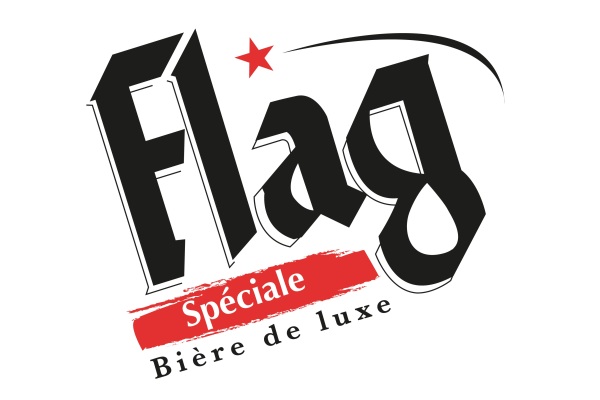
The ISO certification that we have since 2005 is mainly for the quality and the management. There are other certifications that we aim to obtain, such as the 22000 certification for food security, so we work to get it next year. There are also other certifications that we have the will to acquire in the future years, such as certifications for environmental compliance, ISO 14000, etc. SOLIBRA believes, and also the group believes that the normal development of African countries will follow the global trend of respect of the environment. Therefore we have an obligation to participate in recycling, through a recycling program that will be implemented by the states.
We have two types of products: we have products that are in the returnable glass, which are the most environmental-friendly products, first because we often recycle the same bottle, and second, the day when the bottle is too worn to be used, glass is 100% recyclable, and is recyclable almost indefinitely. Another part of our production is done in one way packaging, disposable packaging, either PET or cans, or even disposable glass. These three products have different environmental profile. We fully recycle the glass for example, we do it 100%. Cans, we can make it through metal recyclers, but which are not in the country. And PET, we do it through partners today, which recycle PET in the country. But we are not yet involved in a national program for recovery and recycling because the government is just putting it in place. But we believe that in future years, there will be a requirement that is quite normal, and SOLIBRA intends to participate, because it is part of the respect and life of a company through a country.
What about your action in the social domain, can you give us some examples of actions you have recently implemented?
We have a whole program of participation, in terms of education and in terms of health, in particular through our brand of mineral water Awa.
Is there something that you may want to implement in the future? On water for example.
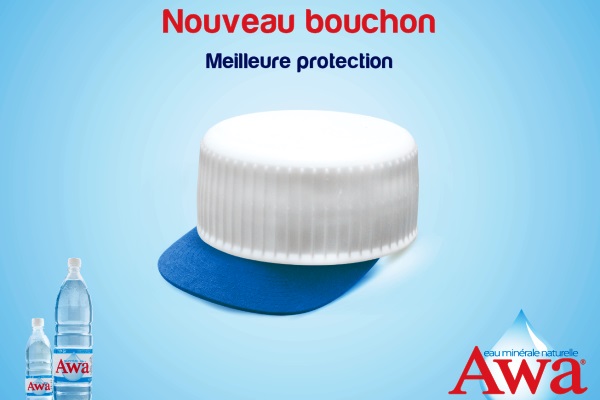
On water, through maternities for example, we have the first mineral water in Côte d’Ivoire. It is a real mineral water in the French sense of the word. That means it is 100% natural water. We are not performing any treatment to the water, whether chemical or physical. This means that it is natural water, we analyse it to make sure it meets the specifications of the most demanding specifications in terms of quality, but then it is water that is 100% natural and mineral, and which is registered as such in Côte d’Ivoire. Besides that we have spring water, which is table water, and this is our second brand. But at the mineral water level, we insist on strong quality and on the potential impact of this product on health, particularly through maternities and hospitals. Today, when someone in Côte d’Ivoire orders water, he doesn’t order a bottle of water, he orders an Awa. Unfortunately, some competitors who don’t have the quality of the Awa brand take advantage of this reputation to sell their water. And we would like to stress: we are the only ones here to be able to provide this quality.
Do you have also examples of sponsorship programs?
We support and sponsor the cultural field, the social field, sports, etc., it can be the organization of Miss Côte d’Ivoire which is a cultural organization, or support of sports teams like basketball or others. We have other varied programs; there is a project for the moment, for example, to participate to the reconciliation programs. Reconciliation is a very federalist theme today in Côte d’Ivoire, which has enormous importance after the tensions in the previous presidential election. Therefore the government and I think all partners and actors in the political life, made this reconciliation a symbol of Côte d’Ivoire, between the two elections. So there will be elections next year and so, all the players insist very hard on this reconciliation, so that everything goes well and democracy can again be expressed without hindrance throughout the country. We were approached by people who launch very symbolic reconciliation programs, and we want to participate in this program of national reconciliation, at the country level – in the same way our products are distributed throughout the country.
You mentioned you are not interested in fund raising for the moment, what is your vision for developing the company here in Côte d’Ivoire? Do you need investors?
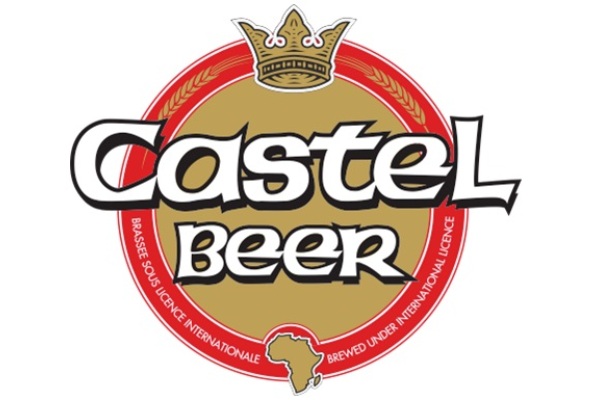
Currently we have an investment policy that is permanent. We have invested heavily in the last three years to meet the increasing needs of the market. Probably in 2015/2016, the intensity of investment will be reduced because we would have upgraded the plants to meet the required capacity for the market. We will support the growth of the country. This means that if in future years the market exceeds our current production capacity, it is clear that there will be a very important investment policy from SOLIBRA. And depending on the investment needs, the controlling shareholder will decide whether to fund it with own funds, with debt or by a capital increase that would increase the liquid assets of the company. But today, it is impossible to know the decision of the Board of Directors and the General Assembly at that level.
How do you see Côte d’Ivoire grow and develop?
I am relatively new in Côte d’Ivoire, as I have been here only two months, but I find that the economic indicators are extremely reassuring in the case of Côte d’Ivoire. First, the fact that Côte d’Ivoire remains an agricultural country is very important. Agricultural but not in the sense of a concentration of production in some huge units, this is still a country where there is a very large rural fabric with many farmer families, who can live from their cultivations. Côte d’Ivoire has large crops such as cocoa, rubber, and sugar for example. Although I think we should make an effort to help farmers more, especially in infrastructure, allowing them to more easily lift their products, despite everything, it’s still a largely agricultural country. And personally, I think it ‘is very reassuring for Côte d’Ivoire. Along with that, Côte d’Ivoire develops its businesses, its processing industries. That means that automatically, the service sector grows in parallel. So these three aspects make me very confident in the future of Côte d’Ivoire, and the indicators are reassuring.
To conclude, would you say Côte d’Ivoire is regaining its role as driving force of West Africa?
Absolutely, the indicators confirm that. The decision for example of the African Development Bank to return to Côte d’Ivoire is a very good signal. I believe that the dynamism of Côte d’Ivoire over the past three or four years, depending on growth that we recorded, show that this is a country that redevelops and reindustrialises all elements of its economy. They don’t have an oil reserve that guaranties for them an easy income. Personally, I am very confident about the future of this country.
FAIR USE POLICY
This material (including media content) may not be published, broadcasted, rewritten, or redistributed. However, linking directly to the page (including the source, i.e. Marcopolis.net) is permitted and encouraged.